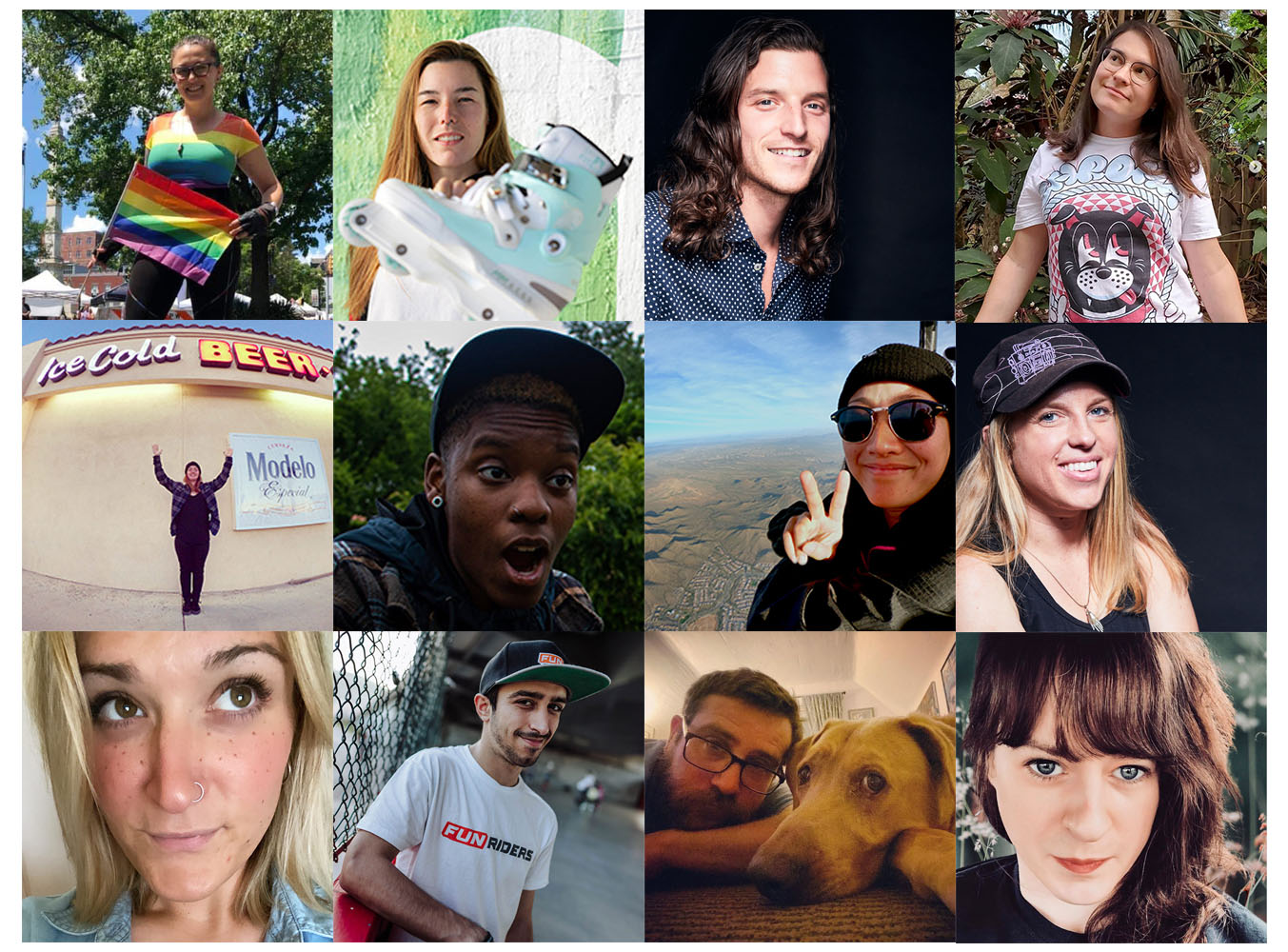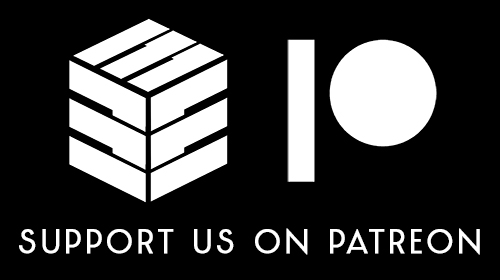INTRODUCTION | Jonathan Labez @JMLabez
Being queer in rollerblade culture has been a story that has remained on the peripheries for much of its history. The reasons vary but several stand out. The cis-heterosexual bias of a predominantly masculine sport and an unconscious partiality towards those who reflect your values and beliefs (the latter of which is tribalism inherent to all people). Then there are societal and cultural rules that enforce stringent values (gender roles for instance) and repress queer lives with threats of discrimination and violence. Lastly, are the limited channels the sport has offered to discuss these issues. It should be said these aren’t unique to rollerblading, merely magnified from the society which they are cast from. As society becomes more enlightened, so does the sport. Attitudes from 20 years ago feel dated and uncouth. Media like Jump Street Podcast recently interviewed Tim Adams to openly talk about being gay. It is something I can’t say would have happened even 10 years ago. The boom of social media has also shifted perception in our subculture by allowing people to find those of like minds and bodies. That became readily apparent when putting together this article.
While not the first time Be-Mag has talked about these matters (see former Editor in Chief Josip Jagić’s story ‘Blading’s Battle with Bigotry‘), it marks a first in bringing these many voices together.
I could be tempted to say this feature is a representational piece about the queer rollerblading experience, but the reality is it only represents those who are able and willing to speak in the west. Those living in Eastern Europe, Latin America, the Middle East, Africa, China, or Southeast Asia (essentially non-western countries) do not have the same luxury to be so open. People in these areas remain closeted for fear of imprisonment, murder, and ‘re-education’. It’s a real life and death fear looming over those living in these areas. That’s not to say these aren’t troubles in the west, but a feature like this is predicated on the more progressive values of the west.
Even still, there were a number of people contacted for this feature that declined to participate for reasons varying from not being out publicly, not looking to draw ire from the community, or not being representational enough. What I found was this was a difficult article to create because it is a difficult topic to tread. It is one the rollerblading community has been in dire need of addressing. While far from perfect, this feature opens the dialogue for acknowledging a diverse group underrepresented in our sport.
If we want to uphold the mantra that rollerblading is about community and inclusivity on wheels, we have to start a dialogue that isn’t just during Pride Month. Not just at Be-Mag, but with other blade media and amongst ourselves. We at Be-Mag hope this is a step in the right direction.
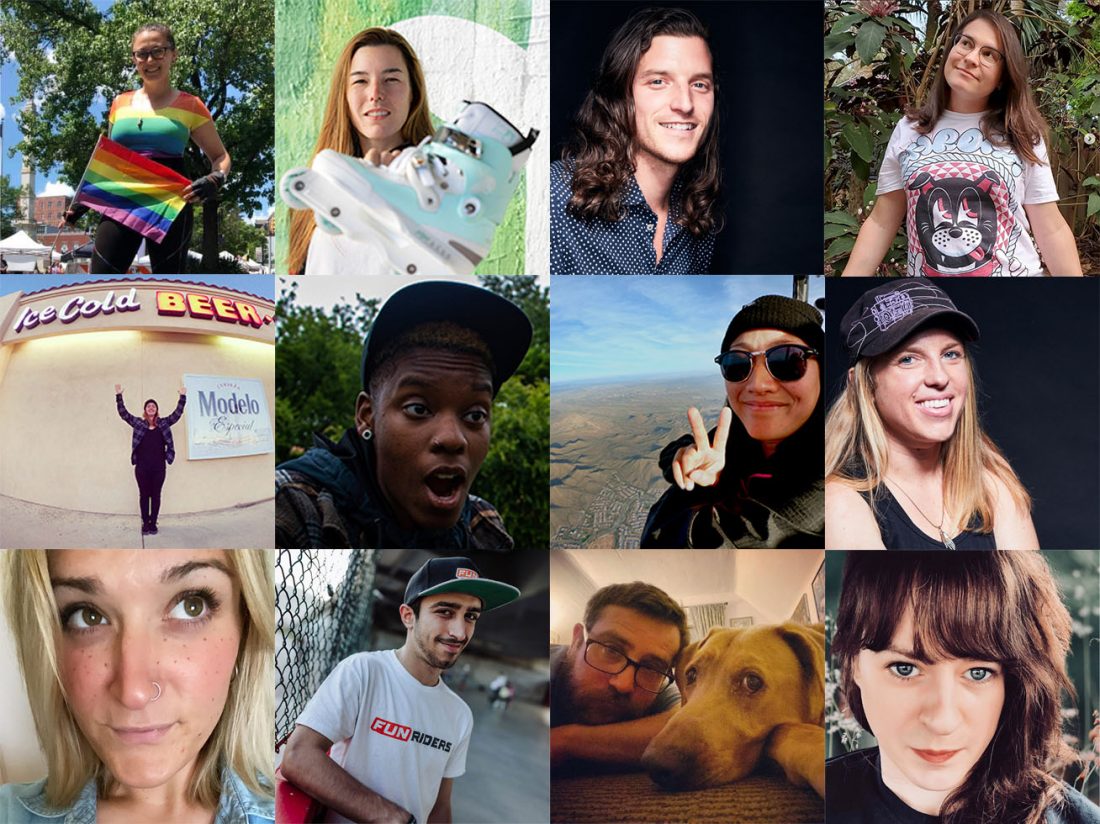
MERY MUÑOZ (@MERY_MUNOZ)
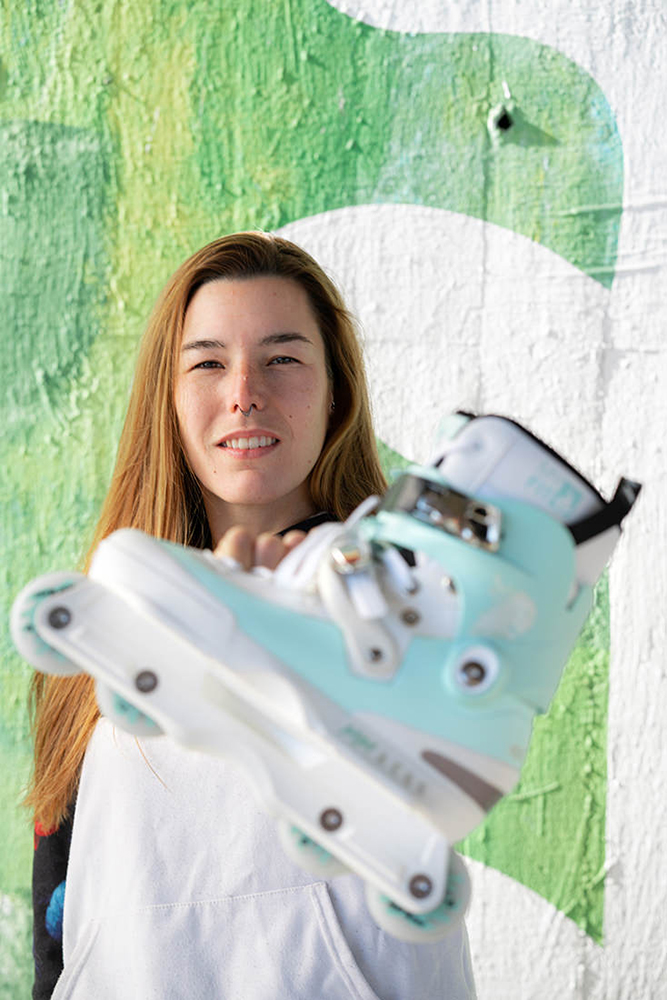
How do you identify as?
Human.
What was your life like before and after coming out?
I never felt I came out. I live my life loving my close ones. The moment I was kissed by a women, my brain just understood that this felt like what it supposed to be. I was lucky that my friends were super supportive and they didn’t really pay attention to that. In the end , who cares … as long as I was happy.
How supportive have people been? Did you lose anyone during that transition? What changed for you?
In my case , I never had any issues. Nothing changed, just I understood better why I was the way I am. Spain is very open minded about this. Love is love. Really who cares? If they have a problem with it, out of my life. Problem solved.
Has there been a time when you experienced some kind of discrimination within blading?
Ex-boyfriends not liking I had a girlfriend. haha. I feel very lucky to be born in Spain. Everyone should feel free enough to do whatever they want. As long as you are not hurting someone.
Being called a ‘fruitbooter’ or ‘gay’ is an old trope for the blade community. Do you think it had any long-term repercussions on the everyday blader’s opinion of queer skaters?
“Inline is gay” … blablabla All this topics are retrograde, as the hate between skaters and rollers. Those who hate have nothing more than hate in their souls… those who love are brave enough to share their love with the world.
Much like being called queer was once outright derogatory, do you personally embrace or reject ‘fruitbooter’ as a descriptor? Should it be embraced by queer bladers?
I like to be called Mery Poppins. People can be called however they want hahaha
What can the rollerblading community and industry do better to support queer bladers?
By supporting athletes , the more variety the better.
Who are some queer bladers we should take note of?
My trans friend male to female , skating on Barcelona @ni_na_ni_na_ni_na_ni_na.
RACHEL NICOLE DUHADAWAY (@BIG_H_RACH)
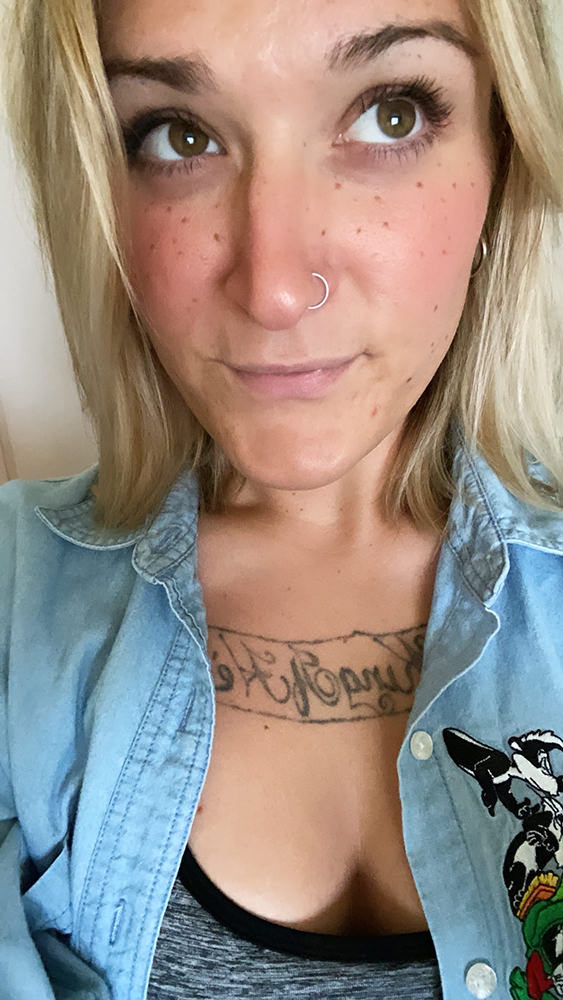
How do you identify as?
Female.
What was your life like before and after coming out?
Life was a bit undirected, mundane. Like overcast weather everyday of my life, constantly searching for bits of joy to fill the void. After, life has purpose, it has a meaning. I can take the sunny days and the overcast days all the same. Ambition had come to me for the first time in my life since I was a kid, and kind of directed me in the current endeavors I pursue. I’m proud of myself, and I know boundaries now, I’m my own person and love myself for the woman I am. It’s been a journey for sure, but I’m finally free.
How supportive have people been? Did you lose anyone during that transition? What changed for you?
I lived *stealth* for a long time after initially transitioning, only recently disclosing to everyone (that didn’t already know/I told). When I initially transitioned I lost a lot, I as in the middle of a not-so good divorce of a woman who was not initially supportive of me and my choice to transition. My family at the time was not into the idea of what I was going through, and at 22, life was a little wild. It took people a while to come around, shedding a lot of fair-weather friends and losing some bigger friends I had thought would be there forever hurt, but it was necessary pain. I think like anything in life, change can be hard but it’s good. I’ve become a better woman, a better sister, a better daughter. I learned love and compassion, not only for everyone around me, but for myself. I’ve been humbled, and grateful for everything I’ve learned/and experienced in this journey and love the woman I am today. A proud trans woman.
Has there been a time when you experienced some kind of discrimination within blading?
Absolutely, though only after disclosing I was trans. It was more I was being hit on a lot by some men in the group of skaters I skated with and after, they acted slightly different. Though, luckily less creepy. I still skate with some of them, it’s just a different vibe and I can tell. I’ve also heard it jokingly said, “that’s why I’ve learned x or skate like x or have style like x.” It’s bullshit…I put work in and try to better myself. That’s how I’ve learned what I’ve learned, not because of what may or may not be in my pants. Cis women rip harder than me on the daily. Having specific genitals or not does not make you a better skater. Chynna would destroy me and a majority of the insta bladers you know in a game of skate. Get over yourselves.
Being called a ‘fruitbooter’ or ‘gay’ is an old trope for the blade community. Do you think it had any long-term repercussions on the everyday blader’s opinion of queer skaters?
I do, as people with the mindset of being uncool or maybe having internalized homophobia from the word have still maintained that mindset. This shows through in what styles of blading or the blader at hand, that these folks like. I do believe much of the community has moved on and take it in jest, but some feel strongly about blading in its current state and take it out on muffled screams of the queerness (which often misdirected) of said skater or way of skating. “No more fairy skating, more hammers”… grow up, old man. To me this feels silently homophobic/transphobic/sexist in some cases, or at least implied. You can have both. skating means different things to different people, separation drives the wedge between us. This is a family, love each other for what we are. Even taking queerness out of it, I believe it still has caused bitter old men to lash out on sadboy instagram comments cause tricks they could never do themselves are no longer being done the way that they like, “This is why they called us fruitbooters.”
Much like being called queer was once outright derogatory, do you personally embrace or reject ‘fruitbooter’ as a descriptor? Should it be embraced by queer bladers?
I love the word fruitbooter, I think it’s comical. I also enjoy it as a descriptor cause it’s embracing a slur that honestly has always sounded silly, but now it’s kind of a cool way for queer identifying skaters to laugh and agree with. Or at least I, myself, do. I’m a proud fruitbooter.
What can the rollerblading community and industry do better to support queer bladers?
Create more colorways, build more passion. Support not just the industry but those buying the skates you’re manufacturing. Build into the queer community, support the supporters. Build more expansive teams, we’ve seen a shift in what skating means to a lot of people, brands should reflect that. Some are taking steps to support the causes in a lot of ways, but we need everyone to play. Not just the 3 I have in my head. We’ve seen what Them and USD can bring to light with issues they back and support. Let’s see everyone play, Roces has a prominent face in queer blading, with Grant Hazelton. This is a man I look up to as a ‘lil fruitbooter. To see someone queer and killing it, I would love to see that man be given a skate.
Who are some queer bladers we should take note of?
@phaseeeee Jen is another trans bladie, and she is a ripper on the come up for sure. A good friend and an awesome person to talk to! @meh_kale_Uhh Mikayla is a doll, I adore this woman. When shes not ripping it as a blader shes absolutely destroying math rock rifts on her guitar. Love you mama <3 @thaigrrr7 Angie is the put on forreal, I’ve not gotten up to the region to skate with her yet, but this lady has welcomed me to more events and conversations of love than I can even begin to explain. This woman’s heart is huge! I’ll be up soon to skate promise! @chriss_haas If you don’t know this bladie get your head out of your butt. This woman is an inspiration to me every time we skate. Energy is always high, passion is 110% and she rips harder than most of the boys. My idol and the first bladie I met in real life. A treasure trove of tricks, and a smile always on her face. Love you so much Chrissy!
GRANT HAZELTON @GRANTHAZELTON

How do you identify as?
He/Him, Gay.
What was your life like before and after coming out?
I started coming out around 17 years ago and I’m still coming out. It doesn’t exactly stop. There isn’t a definitive before and after, it’s something that changes over time. In my earlier experiences, coming out to friends and family I always felt a weight being lifted, a freedom of sorts. When you’re in the closest, you’re often living a double life, sharing different bits and pieces of yourself in different ways with different people. I always felt like in some way I was looking over my shoulder, worried about being treated badly, even ashamed of myself. That was exhausting. Coming out helped me be proud of myself and more confident in who I am and my life continues to improve as I’m more true to myself.
How supportive have people been? Did you lose anyone during that transition? What changed for you?
Overall people have been quite supportive and I’ve been lucky to not lose many friends. Those I lost over my sexuality probably weren’t the friends I’d hoped they were anyway. I’m lucky in a way to be a young, white, gay man as there are other parts of the lgbtqia+ community who are not always as easily accepted. I’ve certainly had my fair share of rude messages and arguments via social media as I’ve gained a larger audience but I’ve also received an incredible amount of support from all sorts of people. It means so much to know that being open about myself can help even one person feel better about who they are. The easy answer as far as whats changed is everything, I feel proud of myself for who I am and have confidence to share that with everyone.
Has there been a time when you experienced some kind of discrimination within blading?
The discrimination I associate most with the blading world is the use of derogatory language and offensive humor. I also see people try to keep anything that isn’t “straight” out of blading, questions like “why do you need to show off your sexuality?” “why do you have to make a big deal about it?” etc. Another thing that seems to come up is this idea that somehow someones skill level gives their sexuality a pass, I’ve definitely heard a few “did you know he was gay?” followed up by something like “yea but he’s really good.” We need to get rid of the idea that skill or accomplishments somehow make any lgbtqia+ person more valid or acceptable.
Being called a ‘fruitbooter’ or ‘gay’ is an old trope for the blade community. Do you think it had any long-term repercussions on the everyday blader’s opinion of queer skaters?
I know for sure there were some pretty serious repercussions for myself. Imagine struggling with your sexuality as a teenager, participating in this sport/community you loved while being faced with homophobia that often resulted in your friends asserting very strongly how they’re not gay, blading isn’t gay, how being called gay was the worst insult anyone could think of. It put a chip on my shoulder, it created internalized homophobia and it made me want to be anything but myself for a long time. I’m not sure this language specifically effects the everyday non-queer skaters opinion of queer skaters, it unfortunately may make some of them feel more comfortable using hurtful language. What’s just as harmful is that it creates a part of our community that doesn’t feel safe and welcoming. There are still people who use derogatory language, people who hide behind the history or whatever and that has repercussions on queer skaters.
Much like being called queer was once outright derogatory, do you personally embrace or reject ‘fruitbooter’ as a descriptor? Should it be embraced by queer bladers?
Language is important and it’s important to understand that our words have power. I’m happy for any queer person to use fruitbooter if it makes them feel empowered or more comfortable somehow. Personally I’m not a fan. I’d rather leave it in the past, it holds a lot of difficult memories and experiences for me. Rather than take the word back or change the meaning, I just don’t use it.
What can the rollerblading community and industry do better to support queer bladers?
Practice acceptance over tolerance. Challenge your unconscious bias. Remember that representation really, really matters. Show us that we are part of this community, support your friends, speak up when you can, listen, learn, and believe lgbtqia+ people when they tell you their experiences. From where I sit, blading still feels some need to make sure everyone knows how not “gay” we are. Maybe just let it go? There is so much variety and unique expression in what we do, it’s whatever any of us want it to be and we don’t owe the world some sort of specific proof of our sports “masculinity.” I know I don’t always get it right and you may not either, but trying and being open to learn goes a really long way.
Who are some queer bladers we should take note of?
The other people who are part of this article are a great place to start. Otherwise I’d rather not put anyone on the spot as we all have different comfort levels sharing or lives with the bigger blade world.
ANIKA WINKLER (@ANIKA_ONESIXTY)
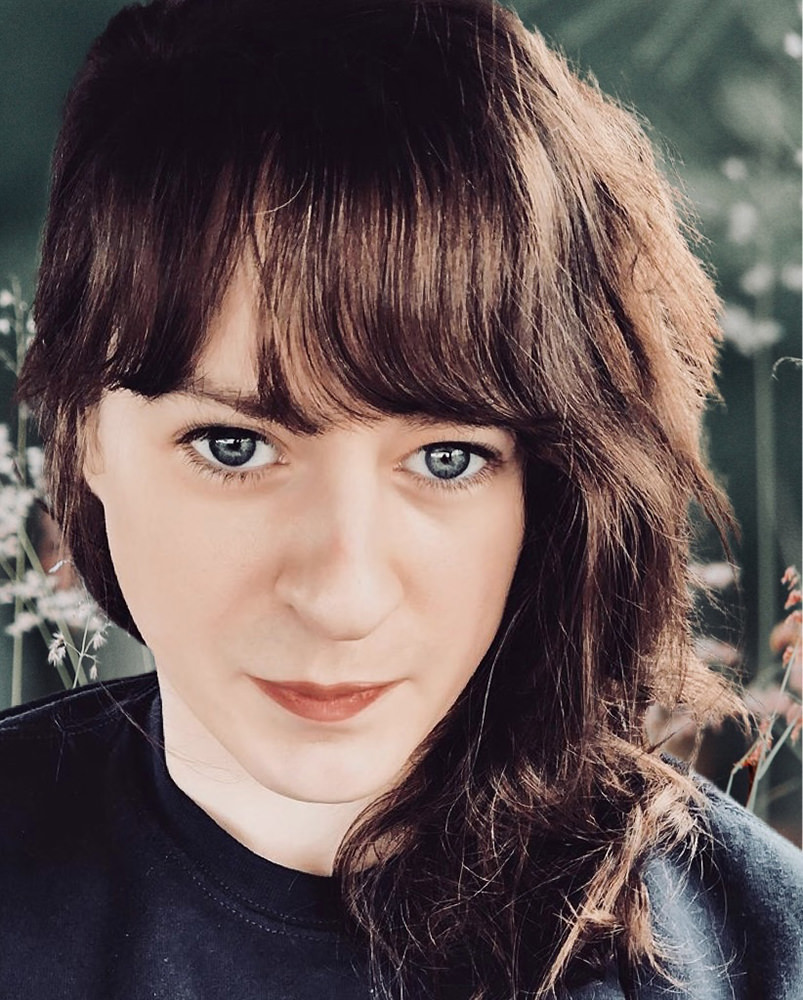
How do you identify as?
Trans-woman.
What was your life like before and after coming out?
Life before transition was abundant, in the sense that, although I always had internalized feelings about my gender, it didn’t hinder me from living a fulfilled life. I was raised in a comparatively, strict household. My parents were from Brooklyn, New York. My father was Jewish and mother Catholic. I don’t think I need to go into great detail for you to know the dynamic, the rules, the guilt, and shame associated.
My siblings and I were raised in the Pocono Mountains of Pennsylvania. Typical suburban, middle-class family that was involved with sports, music, and church. My parents worked their heart out to provide the best for me, my sister and two brothers.
It’s worth noting, I was always non-conforming in one way or another. While my siblings took a more traditional path, I was the outcast. You know the type; explicit music, aggressive inline skating (skateboarding was off limits for obvious reasons), fashion ahead of the times; ie moccasins, girl pants, moms old light yellow ski jacket. LOL.
Rollerblades were a commonly received Christmas gift from a young age, and I skated aggressive religiously from ages 12-17. As I went through puberty, depression and dysphoria set in. My grades in school plummeted, and I started self-medicating, using marijuana and other recreational drugs, gradually skating less frequently. There was no vocabulary at the time. None that fit my criteria. I wasn’t gay or a transvestite.
I was born with an intersex condition that required surgery as an infant, reoccurring until age 3. When I say “I always knew I felt different” it’s hard to ignore the fact that out of the womb, without sounding too drastic, I was consider an anomaly of sorts.
I turned 18 while in 11th grade, having been held back in 6th grade. That spring I was kicked out of my home for going against the household rules when I didn’t show up to Saturday Mass with the family.
In turn my girlfriend and I at the time had a calling for lack of better words that led us down a path of self discovery (Into The Wild) and spent the next few years traveling, and volunteering on organic farms throughout the Northeast and Midwest in an air cooled Volkswagen.
After 30 years of remission, my father’s cancer came back with a vengeance. Shortly after he passed away, my soon to be wife and I set westward to start our own organic market garden in the central coast range of Oregon.
We had a good run of 4 years serving our community and becoming immersed in the culture. It was refreshing to see pride flags throughout different towns/cities, people with different colored hair, and a state government that supported the LGBTQ rights. There was suddenly terminology for what I had been experiencing my whole life. Celebrity sports icons were even coming out as this thing. T-r-a-n-s-g-e-n-d-e-r.
Before long, I was experimenting in dressing differently within my own home, and inadvertently putting a wedge between me and my wife. After our last season together also being our least prosperous, my wife booked a trip back east to visit family, to no return. I simultaneously booked an appointment with a therapist specializing in gender dysphoria. The next few years I experienced challenges and set backs I wouldn’t wish for anyone to go up against, unless it was truly the path meant for them.
The rebirth, so to speak, of someone transitioning is a very personal journey. It’s a time that one can find themselves self-isolating and withdrawn. I was fortunate to have great guidance from health care professionals and peers alike to ultimately come out on top. I begun hormone replacement therapy at age 25 and endured well over a dozen laser hair removal sessions. Within 2 years of coming out, I was on a list to have Gender Affirming Surgery at OHSU in Portland, Oregon.
I don’t think there is any way to fully understand the gravity of that procedure, and it’s recovery, but I assure you it was of the utmost arduous feats of my entire life. It required physical therapy and training to get back to basic mobility. It was about a year before I was able to gently jog, or hop.
I began to brainstorm on ways to build muscle without exasperating too much, such as riding a bike. I recall once or twice a year since I stopped skating, I’d go online to see what new skates were out and it clicked. I had envisioned that I’d one day be back on blades.
If there were anything positive that came of the pandemic, it would be the flexibility it gave some of us to revisit the best part of our teenage years, rollerblading. I wisely spent my stimulus money at Oakcity on a pair of Them 909’s with Oysi frames with decent wheels and bearings (and 3 other pairs of skates haha) — I fell directly on my butt my first time back booted up.
I can’t say aggressive skating is exactly like riding a bike, but the trick vocabulary comes back very quickly, and as I became fit and in shape, revisiting some of the more advanced tricks came more easily. I’ve lost 80% of the weight I was trying to lose since surgery, and I’ve been staying physically active day in and day out.
The bottom line is, though, we never stop coming out. Every new experience, life change, new job, new sport, new city/town, online community, we are constantly coming out, and educating others with our different, and shared experiences. Here I am right now in a more official capacity, coming out to the rollerblading community!
How supportive have people been? Did you lose anyone during that transition? What changed for you?
The support I’ve received has been incredible. With some setbacks to be expected, I’ve managed to surround myself with caring and compassionate people who push me to keep growing. What has changed? To put it bluntly, everything. However, I’m lucky to have my family’s support, which isn’t always the case for many LGBTQ folks. I’ve lost some childhood friends, which isn’t unheard of as we get older. More surprisingly it’s the number of kids who came off as bullies as kids that have reached out to say some kind words and that had been pretty meaningful. Admittedly I was homophobic growing up, as a self-defense mechanism.
Has there been a time when you experienced some kind of discrimination within blading?
Yeah, kind of… Dressing the way I did as a teenager I caught some flack within my local skate crews, but it wasn’t super mean spirited, more so in jest. Since transitioning there may have been one comment made in the RB RB Facebook group that was taken down immediately, and a good handful of folks were right there speaking up on my behalf, which was really reassuring. I can anticipate maybe some backlash from this article, but hopefully this can do more to help educate than to fuel hated moving forward.
Being called a ‘fruitbooter’ or ‘gay’ is an old trope for the blade community. Do you think it had any long-term repercussions on the everyday blader’s opinion of queer skaters?
Haters gonna hate, haha. The footbooters and woodpushers in my high school were all pretty close, as it was a reasonably small city. Whether the term has had an impact on everyday blader’s opinion on queer skaters today relies on the fact that if someone is prone to bigotry, they will make themselves known regardless of past slurs that were commonly used. I personally take no offense to it, and I think it’s kind of a funny word.
Much like being called queer was once outright derogatory, do you personally embrace or reject ‘fruitbooter’ as a descriptor? Should it be embraced by queer bladers?
Again, that term it really doesn’t bother me.
What can the rollerblading community and industry do better to support queer bladers?
Let it be known that, trans-bladies in particular are in fact living breathing bladies, regardless of body type or skill level. To be reminded that in the queer community there is spectrum of gender that varies, and none of which are grounds to exclude someone from enjoying what we are brought here together to do, blade. I’m not saying everyone should get a trophy for participating, but it would be dope to see a queer person on brand’s team!
There aren’t droves of trans-identifying people in this, or any sport. The misconception that someone born AMAB (assigned male at birth) is guaranteed to have an unfair athletic advantage is an archaic way of thinking. While statistically biological male physiology points to more muscle mass, increased stamina, and so forth, hormone replacement therapy reverses these attributes and minimizes testosterone to undetectable amounts and levels the playing field. Same concept goes for AFAB individuals who have bodies that would put them at an advantage for activities that require a less robust build, for balance, flexibility, and agility.
Regardless of the semantics, there are many bladies who are well recognized, that have paid their dues, gained respect by proving their skill set and made names for themselves. For these OG Bladies I’m grateful to be acquainted with, look forward to skating with, and feel supported by including, but not limited to: Megan Petersen, Polly Morris, Stephanie Bennett, Chynna Weierstall, Mery Muñoz, and Tina Vallarta.
Who are some queer bladers we should take note of?
@meh_kale_uhh
@innvert
@Thepickleshreds
@thaigrrrr7
@black_vegetables
@gorgamin
@big_h_rach
@fightingfire_with_fire
@brandigr2
ALAIN RODRIGUEZ (@ALAINVERSA)
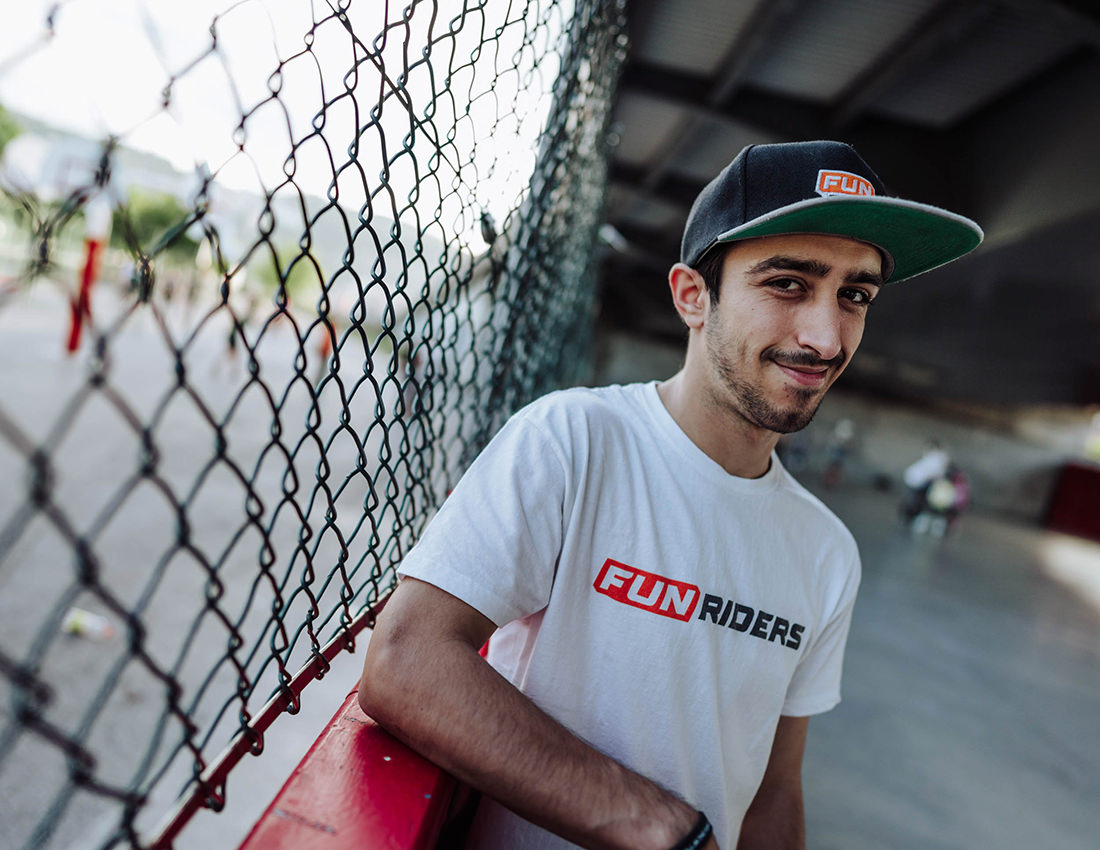
How do you identify as?
I am a person who does not like to label himself. Currently I identify myself as a ‘Gay’ person, but really inside me I feel openly ‘Bisexual’ since I do not rule out that in the future I may have relationships with women. This would give us a lot to talk about, so I think it’s better to stop here.
What was your life like before and after coming out?
When I was a kid, I was a very shy person and I have had some bad times. I overthink things and keep it all to myself, so that didn’t help at all at first. I was always afraid of how the news of my sexual orientation would affect my family, although I also thought that they imagined it because at home I was myself and that could give them some clues. I love to dance, sing, I played with my cousin and her dolls, sometimes I wanted to have colorful hairstyles… Those are things that all children do not do, and can be strange for some adults. At school I always had problems with classmates who insulted me saying “fag” or “nenaza” and more ugly things, but I always denied it, defended myself and made me see that I was tougher than them. Many times this words were really unbearable and I would explode with rage. More than once I got in trouble for defending myself with my bare hands. My goal was that those people ended up understanding that it was better not to mess with me, hahaha … I have always played football because I loved it and when I started in Rollerblading I was afraid because that world was unexplored territory for me. I thought that people were the same homophobic than in soccer or even more.
Finally at 18, I came out of the closet and since then I cannot feel prouder of who I am!
How supportive have people been? Did you lose anyone during that transition? What changed for you?
The truth is that I cannot complain. There were difficult moments during the transition, but my friends and family have always supported me. Luckily I have a very young and modern family. My great fear was how to communicate it and at that time I suffered a lot because it did not always happen the way I would like. My friends have been a very important pillar since they were the first ones I trusted for this battle. Those memories are a bit blurry now, but I won’t forget that it was Mery Muñoz who encouraged me to come out and she became my best friend, as well as being my greatest reference in this sport. It was Mery who discovered what I kept inside me and she extended her hands to help me walk in my new life of freedom.
In reference to if I lost someone during the transition, I’m not sure about it. In case that happened, they are the ones who have lost me! Hahaha. To change? I would say that nothing changed on me, but at the same time it changed everything positively… I started to be myself on the streets and to love myself. No matter what they said. I understood how necessary freedom was, it helped me grow as a person and above all he taught me to respect others.
Has there been a time when you experienced some kind of discrimination within blading?
Honestly NO, at least that I know of. I think I am very lucky for it!
Being called a ‘fruitbooter’ or ‘gay’ is an old trope for the blade community. Do you think it had any long-term repercussions on the everyday blader’s opinion of queer skaters?
HA HA HA. Is this a joke? I laugh because I think this ‘hate’ is ridiculous and out of date, but I think it is a very interesting question. I have to break a spear in favor of this because, generalizing, this has only made the Bladers empathize more than the LGBTI+ world, since the treatment received by those people who threw their garbage against us has made the Blader community feel something similar how we ‘Queer’ people feel. At least that is my feeling… I understand that the world is very big and that there are countries in which this can be understood in a very negative way, and I am very sorry, but this is already a separate issue that has nothing to do with our community.
Much like being called queer was once outright derogatory, do you personally embrace or reject ‘fruitbooter’ as a descriptor? Should it be embraced by queer bladers?
Woooow! I totally accept it! From my ‘Queer’ experience I can assure you that taking an insult and appropriating it to empower yourself is the best thing to fight against people who try to sink you with humiliating words. ;P
What can the rollerblading community and industry do better to support queer bladers?
I sincerely believe that this initiative is a great step, I believe that in our sport there are still many people in the closet (especially men) just like in football. And because they don’t have references they don’t feel comfortable or safe to take this step. From here I encourage all the community and the industry to support the cause and not only for the pose. Recently Roces did a rainbow campaign with the slogan ‘LOVE IS LOVE’, and all the colored skates of the brand. I loved this, it made me very happy, but I didn’t really understand the acts they have done for the ‘Queer’ community. It’s a nice detail but maybe a bit overused … @roces_official don’t kill me but I’m not the only one who thinks about it and I think you could have done a bit more… It’s just an advice! 😉
Who are some queer bladers we should take note of?
I have met quite a few women… Melissa Brown was a great discovery, I Love you Mel, obviously my BF Mery Muñoz and the only other gay blader I know: Alvaro Segura.
Thank you everybody for supporting me on my personal and sport life and especially to Be-mag for this initiative. See you on the streets!
ANGIE BENDER (@LEHIGHVALLEYBLADERS)
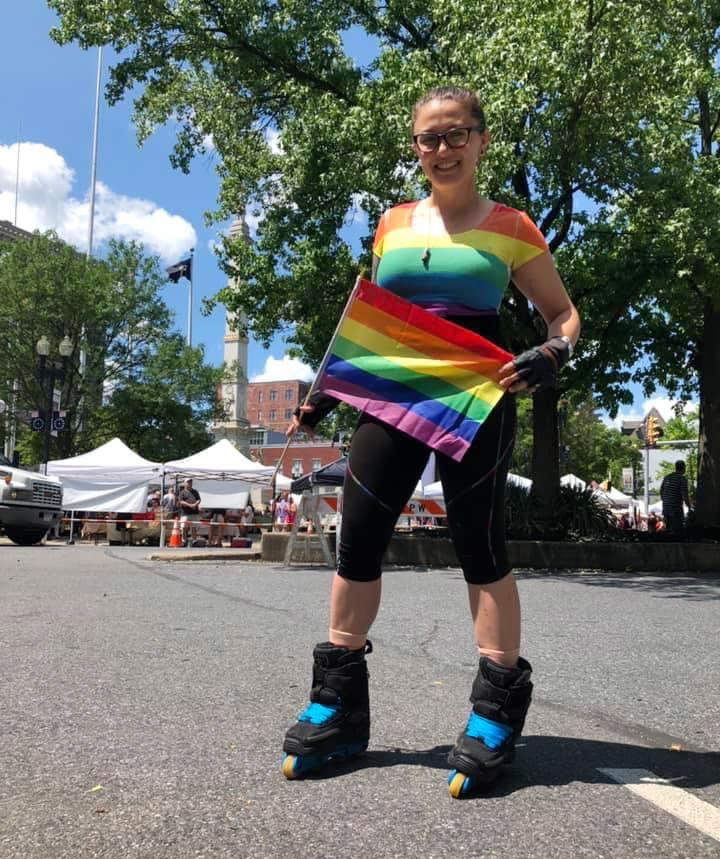
What do you identify as?
Woman, she/her.
What was your life like before and after coming out?
Coming out for me kinda came into two phases. Once with my friends and once with my family. I came out to my friends as bisexual at a pretty young age in high school. Most of my “official” partners were men and I came from a family that was really conservative, so I never felt ready to come out to them until later in life. I was married for 7 years to a man before I left him so to ‘my family’. I didn’t really feel the need to “come out” per se until I got into a relationship with my now wife, Dizzy. It was not exactly accepted at first though my mom, step dad and immediate family were very supportive.
How supportive have people been? Did you lose anyone during that transition? What changed for you?
I feel like I’ve lost a decent amount of “family” members who hold tea party republican views or those who are heavily Christian and believe what we are doing is a sin. But hey, a lot of that negativity is also coming from a religious group who preaches “love thy neighbor” and also a huge group where pedophillia is often discovered….so it doesn’t bother me personally. I try my best to advocate for my LGBTQIA family and empower them to have a voice when they face adversity.
Has there been a time when you experienced some kind of discrimination within blading?
1000% and to be honest, I still see it now. Back in the 90s the respect just wasn’t there for myself as a woman. I had my crew of close friends whom I skated with but sometimes meeting new male bladers wasn’t a pleasant experience. There was a lot of misogyny, cat calling, ignoring women or their opinions and knowledge and plain lack of support. I posted a picture of myself with the Pride flag this year in honor of Pride month and I got maybe 3 or 4 people that had something hateful to say. It’s definitely not as bad anymore but it really boils down to pushing that love and respect on others even when they are being shitty. I’m always open for growth and helping my community grow as well.
Being called a ‘fruitbooter’ or ‘gay’ is an old trope for the blade community. Do you think it had any long-term repercussions on the everyday blader’s opinion of queer skaters?
I think it had a lot of long term repercussions on people just feeling safe to be themselves whether it be in the blading community or outside of it. It takes courage to be that friend that confronts another friend about using “gay” in a derogatory form. I’ve seen many people let it slide because they were afraid of what others would think of them. Honestly I’ve embraced the “fruitbooter” term so much that I got a tattoo on my calf of a TRS Lighting with fruit around it! My best advice is, don’t be afraid to confront others when they are making another person feel small or unwanted. That shit is the last thing we need for rollerblading.
Much like being called queer was once outright derogatory, do you personally embrace or reject ‘fruitbooter’ as a descriptor? Should it be embraced by queer bladers?
In my own opinion, “Fruitbooter” has become a term of endearment but amongst bladers only or amongst friends who are close and use it as a term of endearment. If you have a group of people laughing and making fun of someone to be malicious, then that’s a completely different story.
What can the rollerblading community and industry do better to support queer bladers?
Be brave enough to confront your boys or your girlfriends when they are being out of line and using gay jokes in a derogatory form. Be ready to have that uncomfortable conversation and don’t avoid it. It’s super admirable to have the confidence in advocating for others and being inclusive. THAT will bring more interest from not only the LGBTQIA but the younger generation and women too!
Who are some queer bladers we should take note of?
Mikayla Petroski, Grant Hazelton, Tim Adams, Ali @ThePickleShreds, Brandi Goulet, Rosie O’Donaghue, Melissa Brown, Chrissy Haas, Mery Muñoz, and Katie Brown.
ROSIE O’DONOGHUE (@ROSIE_ODONOGHUE)
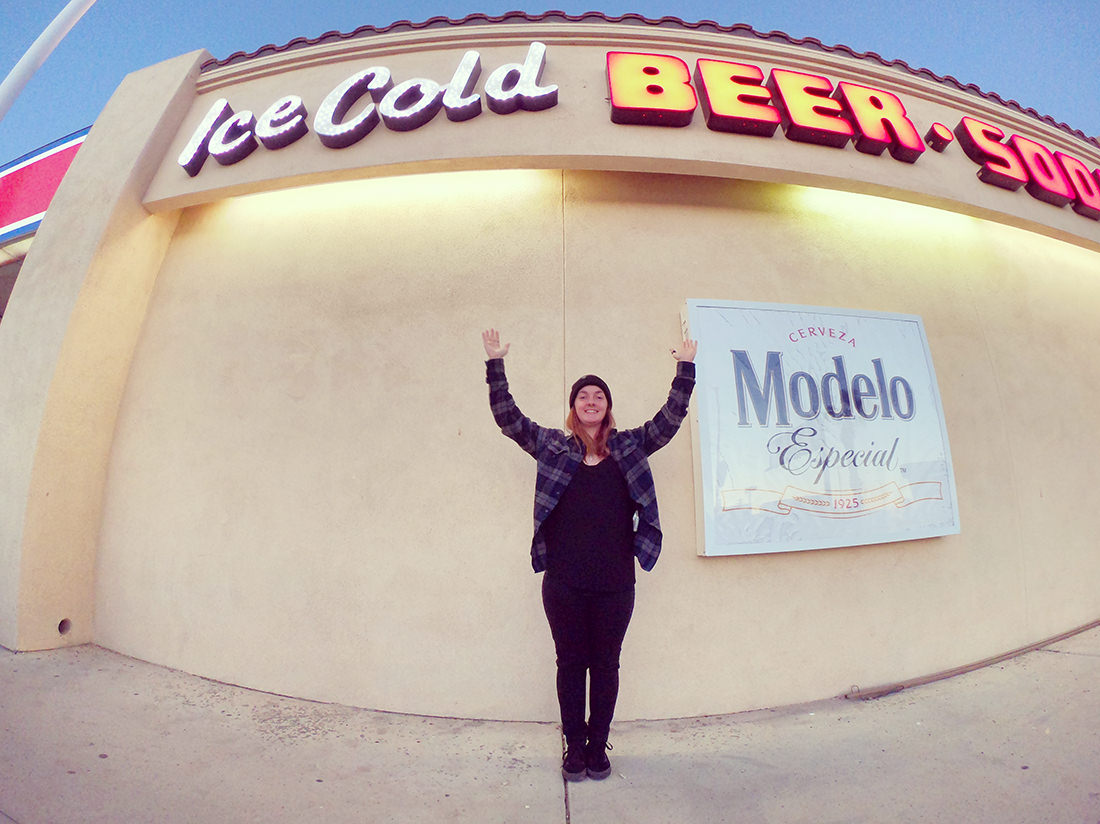
How do you identify as?
She/Her.
What was your life like before and after coming out?
My life has ALWAYS been skating so I had a lot of guy friends and every guy I dated was into skating someway or another so I guess I just went along with it. When I came out it felt awesome, everything made sense and clear. My life is still massively surrounded by skating and all the people in it have supported me from day one. Nothing in that sense has changed except now some of the guys feel more comfortable around me and treat me like one of the “guys” haha but I don’t mind, I find out all the gossip that way. lol.
How supportive have people been? Did you lose anyone during that transition? What changed for you?
Like I said above, nothing has changed! Skating life & Family life, everyone has been very welcoming & supportive which i’m so so grateful for. I just wish it was the same for everyone else to be honest.
Has there been a time when you experienced some kind of discrimination within blading?
I’ve had a few inappropriate words thrown my way from some sleezy bladers that have nothing better to do with their time. But that’s just standard if you’re a female in our sport, unfortunately.
Being called a ‘fruitbooter’ or ‘gay’ is an old trope for the blade community. Do you think it had any long-term repercussions on the everyday blader’s opinion of queer skaters?
My skating started in 2005 so back then. I’m pretty sure I wore a t-shirt that said fruitbooter on the front. I never saw/used that word and thought negatively about it but everything is different for each person. Me personally I’m okay with fruitbooter as I just picture fruit as frames and some boots and not an insult! Gay is also a word that was thrown about back then. For example if I didn’t come to a session I would be called “gay” for not going. Now when I think back to then, I wish the people I hung around with and myself included really understood the long-term effects that could have on kids/adults that were struggling with their sexuality.
Much like being called queer was once outright derogatory, do you personally embrace or reject ‘fruitbooter’ as a descriptor? Should it be embraced by queer bladers?
In my opinion, it all down to how you want it to come across. It’s been a word used by bladers and companies to promote skating but it’s also a word used by others to hate on rollerbladers. I’ve actually never heard the word fruitbooter for a very long time until this interview. Could be different in other countries though so can’t speak for everyone. Me personally it’s never been used in my time as a negative word.
What can the rollerblading community and industry do better to support queer bladers?
My personal experience, I feel rollerblading is very open and accepting. Of course you will get the odd dick head now and then, but in my experience, I hope for many more it’s been a safe space for everyone.
Who are some queer bladers we should take note of?
I only know a handful. Maybe our community isn’t as safe as I think as i’m sure there’s more queer bladers around… Melissa Brown, Mery Munoz, Lisa Mary, Sarah McDonough, Kate Hedges. That’s all I can think of…Pretty sure there’s more??
MELISSA BROWN (@MELLYBLADIE @ROLLHER.UNITED)
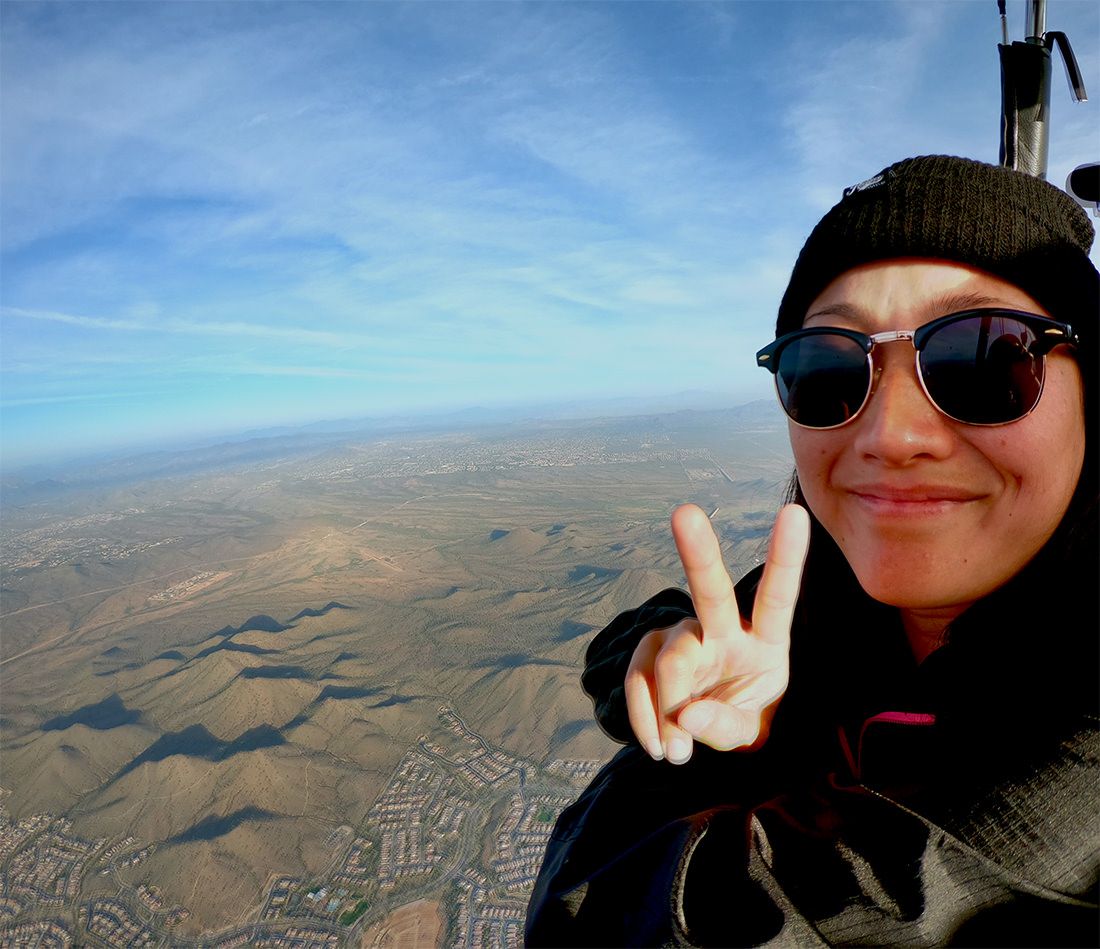
How do you identify as?
Gay AF, haha Lesbian, she/her, cisgender pick whatever you want to choose, I’m just me.
What was your life like before and after coming out?
Life before I came out was “normal.” In high school I focused on sports and academics and an occasional party with close friends. I wasn’t interested in dating because of that. I don’t have have an exciting coming out story, I just told my family that I like girls and they didn’t mind…they didn’t actually care what I liked, they cared more that I was independent and was prepared for self-sustainability post-graduation haha. So in a way, after I “came out” my life was still the same. I worked, skated, traveled… I guess I still actually do the same now! I would say I feel confident and comfortable in my own skin, which I am proud of and I know everyone’s experience differs but I feel complete knowing I don’t have to hide any part of me.
How supportive have people been? Did you lose anyone during that transition? What changed for you?
My family has always been supportive; they’ve always just been “eh whatever makes you happy” type of vibes which I am grateful for. My friends, well let’s say, more of my close friends were not surprised I was gay and some even knew I was gay before I knew. So outside of skating, my friends were always the same regardless who or what I was and that is some true friendships. My skate fam, I would say they’ve all been supportive… I’ve yet to have a skate friend be homophobic towards me. But to be honest, if I have lost people in my life for my lifestyle choices, they were people I didn’t need in my life anyway. People who can’t accept me for who I am, it’s not an energy I need in my life.
Has there been a time when you experienced some kind of discrimination within blading?
As a woman in male dominated sports, I’ve been discriminated against of course. But it’s never worth anyone’s time to let basic assholes ruin your day. Being gay, i’ve not been discriminated to my face. I’m sure there’s a lot of talk behind my back throughout the years and I know other women have been hated on by skaters at the parks or fallen victim to sexual harassment as well. I’m lucky to have a strong female community to be part of and we can only hope we can all be treated with equal respect no matter who we are and what sports we do.
Being called a ‘fruitbooter’ or ‘gay’ is an old trope for the blade community. Do you think it had any long-term repercussions on the everyday blader’s opinion of queer skaters?
I’m sure like any name calling, it can make people feel like they need to hide and stay hidden in sports especially as a queer athlete. I know people who are still trying to find acceptance and comfortability in the community and I believe the community can be more open and understanding and supportive for all. I believe things are changing in society as a whole and for the positive.
Much like being called queer was once outright derogatory, do you personally embrace or reject ‘fruitbooter’ as a descriptor? Should it be embraced by queer bladers?
I personally don’t mind the words fruit or booter haha. In the past 10 years, I’ve rarely come across the term these days anyway. I think people in my generation were the last to even know that term to be honest haha. If people still use that term and intend it to be harmful then it’s definitely not cool, but honestly, I never was offended by the term, I’ve been called many things in life and regardless of how bad the words are, I couldn’t let that drag me down; if anything it made me more resilient. I think queer bladers have the right to feel welcomed and safe in their skate communities, however there are going to be bad apples on many sides of many fences, so I think in the end we just need to look out for each other and be kind to each other.
What can the rollerblading community and industry do better to support queer bladers?
If we continue to be inclusive to the LGBTQ+ communities and allies, that will show tremendous support. If you have friends that are LGBTQ+, to continue to support them and to welcome people of all diversities. Personally, much of my blade fam has always been supportive of me and I’m thankful for the amazing people, so if we can keep up that love and open mindedness, that is going to, hopefully, make everyone feel welcomed who want to rollerblade. I think brands should celebrate their LGBTQ+ riders and should be prepared to face the upcoming discussions for including women and LGBTQ+ people when it comes to products, events, etc and be genuine in building stronger communities for the better as a whole.
Who are some queer bladers we should take note of?
The ones who are already out, the ones who are half way out, the ones who are hidden, and the ones who are becoming. We can always try to be better people; we are creatures who should always be open and learning. Let people be who they want to be, love who they will become and shred.
FALLON HEFFERNAN GIAMBO (@FELONYFOXTROT)
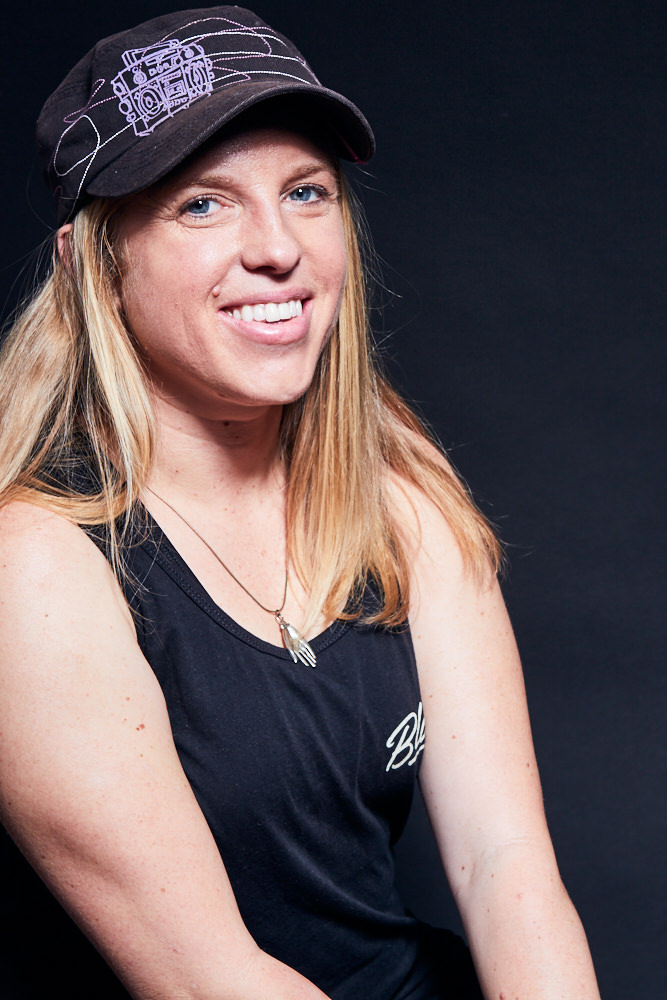
How do you identify as?
Lesbian/Queer.
What was your life like before and after coming out?
I realized I was more attracted to women around age 15 years old. I lived in Florida on the Florida-Georgia line growing up, where lesbians and gay men were intensely bullied. My mother also did not approve, as a “Jewish person for Jesus” in the Bible-Belt. I was unable to explore much, because everything was secret, whereas I was in “the closet”. I also was afraid to come out as a lesbian in the Professional Aggressive In-line Skater field I was competing in. I was worried about judgment from my fellow Pro Bladers, as well as losing supporters over it. These were the early 2000’s and it was not widely accepted to be “gay” in the blading community. The loose slang terms used to describing bad tricks, such as; “that was gayyyyy” and the term “fa**ott” is used frequently at skateparks. So, I felt like these commonly used derogatory terms were indicative of the mind-set held by this male-dominated sport.
After coming out, it has been mostly easy and I have felt widely accepted by the community. It was scary to come out, but I had to do it because I felt like I deserved to no longer hide my sexual orientation and in turn, my humanity. Hiding my orientation could not help to allow other people to feel comfortable with coming out, as well as make it seem like something that was “wrong” or needs to be hidden as something shameful. The hardest part was telling my parents, whereas it was not accepted by my mother and I was ostracized for it. But ultimately, it was worth it because there is nothing to be ashamed of!
How supportive have people been? Did you lose anyone during that transition? What changed for you?
I did lose a relationship with my mom and her side of the family. This was and still is heart-breaking for me and does cause some depression and isolation. My mother did not attend my wedding, whereas she felt she could “go to hell for supporting a gay wedding”. A few of my friends have been more distant, but for the most part, everyone has been insanely supportive and treating this part of myself as something that is not a choice, that they fully celebrate and embrace with me. My best friend, Bitzy, has been my solid go-to friend for any issues I feel of being judged or incriminated for my sexual orientation. And hey! I’m married to an incredibly amazing woman that I don’t want to hide from anyone EVER. So, I’ve learned to choose my friends more wisely and carefully and to cut out anyone who can’t come to terms with my sexual orientation. It is often difficult to deal with losing friends over who I love…and it fuckkkinnn hurts, dude. But I have figured out that it’s best for my self-acceptance and pride, along with eliminating risks of mental health issues that can arise from being ashamed and avoiding those conversations.
Has there been a time when you experienced some kind of discrimination within blading?
Ugh…this is a tough one to answer, because within blading, most people have been very supportive of my Lesbian/Queer identity. Of course there are obnoxious comments here and there, but I feel like they’ve been made out of ignorance for the most part. The most discrimination I have received in my blading career has been for being a female professional blader. Women got all the worst time slots at the X-Games, ASA Pro Tour events, etc… We women also received half to a tenth of the prize money allotted to the top male skaters. Not to mention, that many events that I would like to attend, do not include a female division at all. There is no excuse for this…lack of interest can be a factor, I get that…but there is no way to increase interest without hyping the women up, premiering them at the main event/versus BEFORE the male prelims in the early AM contests/often even on different days than the main event (men’s blading) at events and contests. I have also witnessed a lot of discrimination within allowing trans athletes to compete in the contest of the gender they identify with. This needs to be sorted out and progress with the times.
Being called a ‘fruitbooter’ or ‘gay’ is an old trope for the blade community. Do you think it had any long-term repercussions on the everyday blader’s opinion of queer skaters?
Absolutely! These derogatory terms are not only dehumanizing, but also perpetuate the fear and anxiety for any blader to be able to explore what may be their true sexual identity, out of fear of repercussions and not being taken as a serious athlete. If only the blading community could replace these derogatory terms with something that is not offensively pointed toward a particular community of LGBTQ+ bladers. If a trick wasn’t executed with style, maybe instead of saying that blader looks “gay” or saying “what a fruitbooter” ; the community could start replacing those terms with something that isn’t oppressive, anxiety-provoking, and that promotes isolation and going “in the closet” unnecessarily. I do not think that most people who have adopted these derogatory slang terms about blading being “gay” in a way that is meant to be harmful or hurtful, but the reality is that these are extremely offensive and hurtful words to use. Why would a member of the LGBTQ+ community want to start blading and explore that interest when every time they hit the skatepark on blades, the people around them are insulting the orientation they hold in a way that is intensely oppressive and hurtful? Blading is all about having fun, and people should know by now to not use those kinds of words and replace them with descriptive words that are not harmful to a specific group of people that very much deserve to blade in peace and enjoy the social aspects and progressing with a squad that they/we can feel safe and secure taking part in.
Much like being called queer was once outright derogatory, do you personally embrace or reject ‘fruitbooter’ as a descriptor? Should it be embraced by queer bladers?
I don’t think I have the liberty to say what “Should” be embraced by the queer community of bladers. I can only answer this question, based on my own personal experiences with it. I believe this “fruitbooter” descriptor, was initiated in the late 90’s when aggressive in-line skating took over as the most popular sport in the X-Games/and most numbered viewers out of all the extreme sports highlighted for years. This created strife within the skateboard and BMX communities at the time, and they began saying things like, “Let’s get out of here cause all the fruitbooters are getting in the way and taking over the park”. But then, Joe Navran released the Blading Street DVD entitled “Fruitbooter” and it caused a massive embrace within the community. So, I feel like jokingly calling us “fruitbooters” among ourselves, has taken a lot of the power away from that derogatory term. It has become something that my straight blader friends and I have embraced so that their derogatory term can’t touch us. I think at the time, embracing the term had been an effective helpful thing to do. But now we need to evolve with the times and do our part, however big or small, by progressing the standards and expectations surrounding this kind of harmful language.
When you go deeper into discussions about harmful terms used to insult bladers by calling us “gay” and “fruitbooters”, no matter how clever the term they use arguably is, the potential for more harm to be done by using the “fruitbooter” term should ultimately (in my opinion) be eliminated when it comes to the bigger picture about accepting people for being gay and not using derogatory gay descriptors as an insult. I actually taught a class about this one day to elementary school students because they kept calling things “gay” in the classroom. I addressed this by asking the students what do they mean by saying “this is gay” and “that is gay”…and they said the other words they could use are “weak”, “stupid”, “lame” and “too girly”. So, I explained to them that what they are saying is that “gay” is being used synonymous with these insults of being weak, stupid, lame and too girly. So, when a person of queer identity hears these derogatory insults of being “gay” or being a “fruitbooter”, we feel lesser than as human beings, for something we should be celebrated for doing…loving another human of the same gender. Language used is extremely powerful and carries so much weight and repercussions, whether the person using derogatory words is intending to do so or not. We don’t always understand when someone is “different”, but a thoughtful considerate and kind person can take the time to practice utilizing more sensitive language. It isn’t that difficult to train yourself to do this.
What can the rollerblading community and industry do better to support queer bladers?
The rollerblading community and industry can do A LOT better to support queer bladers in a more sensitive, compassionate and influential way that educates. Reaching out to more members of the LGBTQ+ community who are “out” to celebrate their skate levels and giving them a platform and voice is much needed. There are PLENNNNTYYYYY of incredibly skilled and stylish bladers that identify as Queer/Gay/Transgender/Lesbian to feature, that are so often overlooked. Also, proactively using correct gender pronouns and sensitive language/terminology on any platform will be extremely helpful in eliminating harmful stereotypes and allowing diverse bladers to feel comfortable entering this community. On the other hand, I also believe that members of the LGBTQ+ blading community need to be willing to evolve with their approach to taking on opportunities at having a platform to say what is important to them, without jumping to expressing things in anger and refusing to take part in interviews about “Pride Month” and how it is oppressed/discriminated against within the blading community. I understand that we are all MAAAAADDDD about the current state. But evolution and progression take time, and I believe we need to meet the mainstream where they are at currently, and do our part in educating in a tactful effective way. We can ALL do our part to make change..and a little goes a long way. We will get there!
Who are some queer bladers we should take note of?
The only person I am comfortable “outing” on a public platform, is myself. However, I can tell you that I know of plenty of Queer, Gay, Lesbian, Bisexual, Gender non-binary conforming and Transgender incredible bladers. When they are comfortable with sharing their experiences and “coming out” within the blading community, it will be a privilege and inspiring experience to hear their stories and witness their journeys. So, thank you to Be-Mag for recognizing this community and addressing this very important social issue on such a massive platform.
KYN HANKINS (@BOOMCHLD)
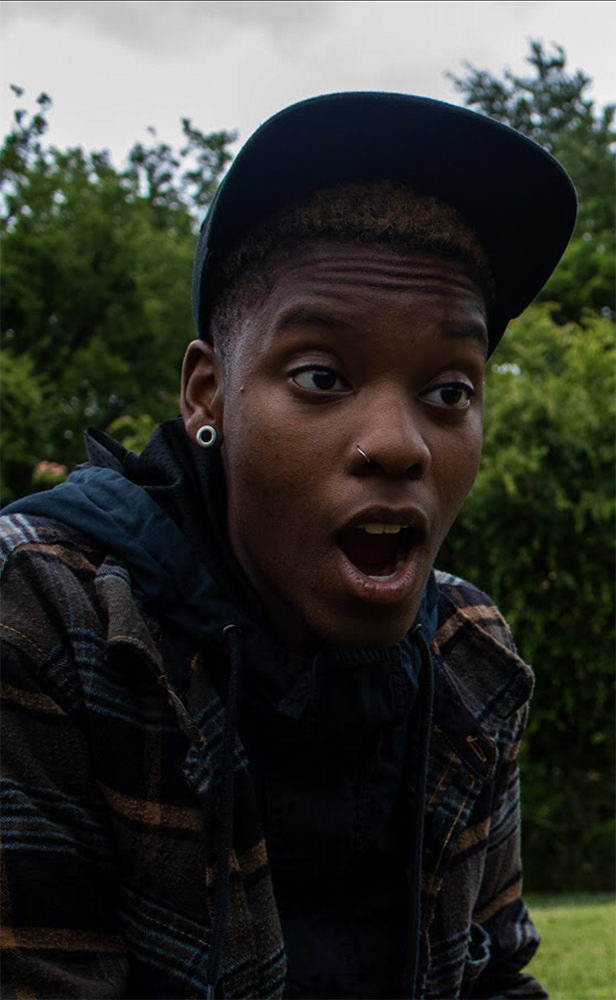
How do you identify as?
They/Them (Non-Binary).
What was your life like before and after coming out?
Before I came out, I put myself into this very small box of what society thought straight people should act and look like. I acted like a watered down version of myself and I wasn’t content. After I came out, I truly understood what happiness was and gained more confidence in myself everyday.
How supportive have people been? Did you lose anyone during that transition? What changed for you?
Luckily I haven’t lost anyone in my transition. My friends have been extremely supportive in my journey and have been by my side every step of the way. At first my family gave me a little push back, but then they educated themselves on how to use they/them pronouns. Now I see more efforts being made.
Has there been a time when you experienced some kind of discrimination within blading?
I used to skate with this group in Charlotte back in August 2020 when skating started blowing up again. The group had a few members of the LGBT community but mainly consisted of cis men. I would get misgendered pretty regularly in the group so I attempted to go to the group leader and speak up about it. I just wanted him to speak to the group and educate them on different pronouns, but I was quickly shut down and told that it was too political and he continued like the conversation never happened.
Being called a ‘fruitbooter’ or ‘gay’ is an old trope for the blade community. Do you think it had any long-term repercussions on the everyday blader’s opinion of queer skaters?
I can only speak for myself, but I personally do not think fruitbooter had any long-term repercussions. It was a goofy term that fizzled away as it should have. Being called gay didn’t have long term repercussions because it was true and didn’t offend me.
Much like being called queer was once outright derogatory, do you personally embrace or reject ‘fruitbooter’ as a descriptor? Should it be embraced by queer bladers?
Being called queer was never derogatory to me, it is simply an adjective. Fruitbooter was created purposely to ostracize and harm the queer skate community. I do not think the word should be embraced, It’s played out and offensive. I would prefer to be called Kyn.
What can the rollerblading community and industry do better to support queer bladers?
I think the rollerblading community/industry should show more representation in the LGBT community and more specifically in the Black trans community. There is little to no representation for us on any pages that I follow. Posting the outdated pride flag is doing the bare minimum.
Who are some queer bladers we should take note of?
Glo – @glowiththeflo333
C – @celerysmurf
Philip Moore – @baphomets_lilbrother
TIM ADAMS (@TOM_ABRAMS)
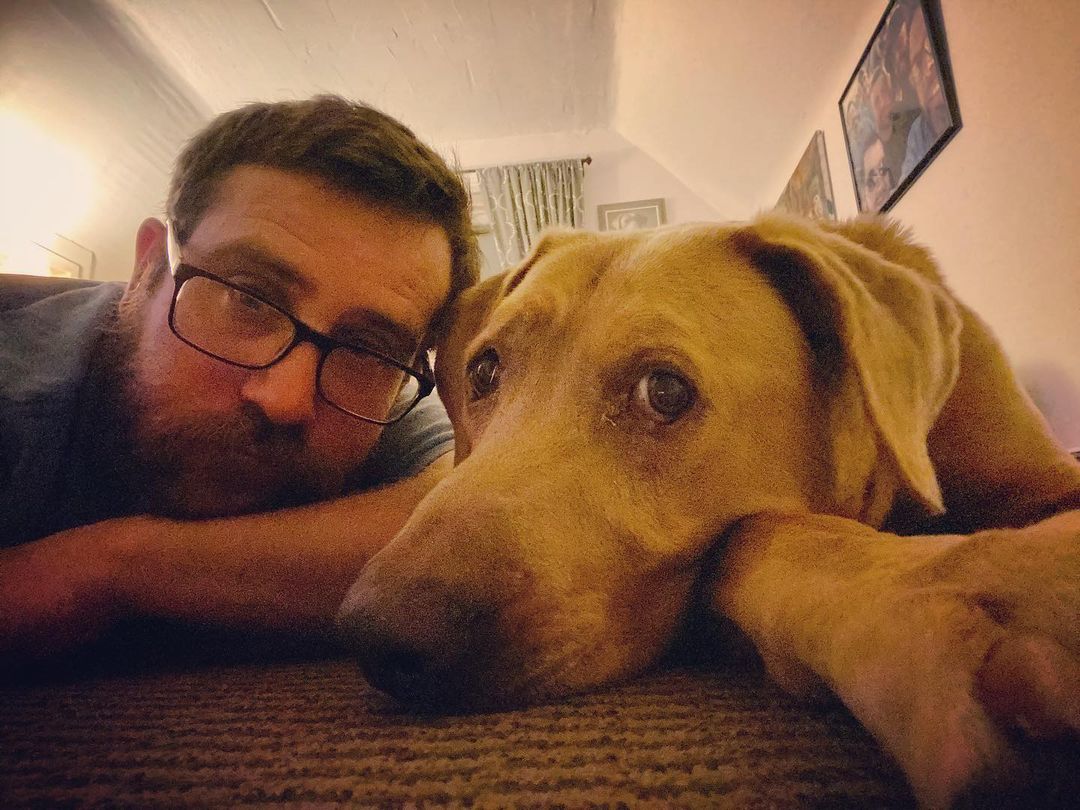
How do you identify as?
I’m a gay/queer cis man. My pronouns are he/him.
What was your life like before/after coming out?
Coming out is a constant process. Because I present as a relatively masculine man, I get to pick and choose when and under what circumstances I “come out”. I came out to my mom when I was 18. I came out to my immediate skating friends when I was 28. I came out to rollerblading and my job when I was 31. I’m now 36, and still coming out to new people every day. And my life is better for it.
How supportive have people been? Did you lose anyone during that transition? What changed for you?
People have been generally supportive. But I think people express their support in different ways. For some it was silence/neutrality, bordering on erasure. Others embraced me wholeheartedly. And most remain somewhere in between.
A handful of friends decided to lose me when I came out. I don’t miss them. If they ever want to reconnect, I’m here.
When I come out, everything and nothing changes. I’m still Tim. They have just received some new information about me; and they can respond as they please. Hopefully it’s positive, celebratory, but sometimes it’s weird. When the experience is positive, I get just a little glimpse into my own liberation, which is nice.
Has there been a time when you experienced some kind of discrimination within blading?
Nope, not yet. Try me.
Being called a ‘fruitbooter’ or ‘gay’ is an old trope for the blade community. Do you think it had any long-term repercussions on the everyday blader’s opinion of queer skaters?
I think the blading community reflects the broader, heteronormative dominant culture. So, of course anti-queer lingo impacted all of our opinions of queer skaters, including my own (internalized homophobia is real). It kept me in the closet for a decade longer than I should have been. As a culture, that’s a history rollerblading needs to grapple with and to OWN.
I also think other alternative sports (skateboarding, bmx, etc) are working through this, because they have queer skaters/riders as well, and those people were not unharmed. I DO NOT buy into the idea that skateboarding invented homophobia in/toward rollerblading. To be sure, they exploited and profited from it. But it was a handful of powerful bad actors manipulating kids. If you’re reading this, you were probably one of those kids.
I could say more, but please, if you’re a straight/cis blader or blading outlet, stop calling out skateboarding’s efforts to include/embrace LGBTQ+ skateboarders because they haven’t yet met your metric for atonement. Especially if you haven’t done shit yourself. It’s not helping.
Much like being called queer was once outright derogatory, do you personally embrace or reject ‘fruitbooter’ as a descriptor? Should it be embraced by queer bladers?
Haha, I’ll refer to a phrase I think of often: “Not gay as in happy, but queer as in fuck you.” I’m of the younger generation that embraces “queer” to mean anything under the LGBTQ+ umbrella, from gender expression to sexual identity. And if some younger queer bladers decide they want to use fruitbooter to describe themselves, I’ll be happy for them. But today in 2021, especially if you’re not LGBTQ, retire that shit.
What can the rollerblading community and industry do better to support queer bladers?
Simple: be an ally. Learn about LGBTQ history. Speak up when we aren’t around, even if it’s weird. If you’re a brand, donate 10% of your profits to legit LGBTQ causes. And another 10% to BLM. If you can’t find a cause worth donating to, send money to your queer friends, bipoc friends, unemployed friends, unhoused friends, etc. and we’ll put it to use.
Who are some queer bladers we should take note of?
Mikayla @meh_kale_uhh
Philip Moore @baphomets_lilbrother
Grant Hazelton @granthazelton
Ali @thepickleshreds
Charlie @charlie_wright67
Michael Kraft @elfywithwhispies
Jarrod Banning @jrodbanning
There are others but idk what their status is as far as being out.
MIKAYLA PETROSKI (@MEH_KALE_UHH)
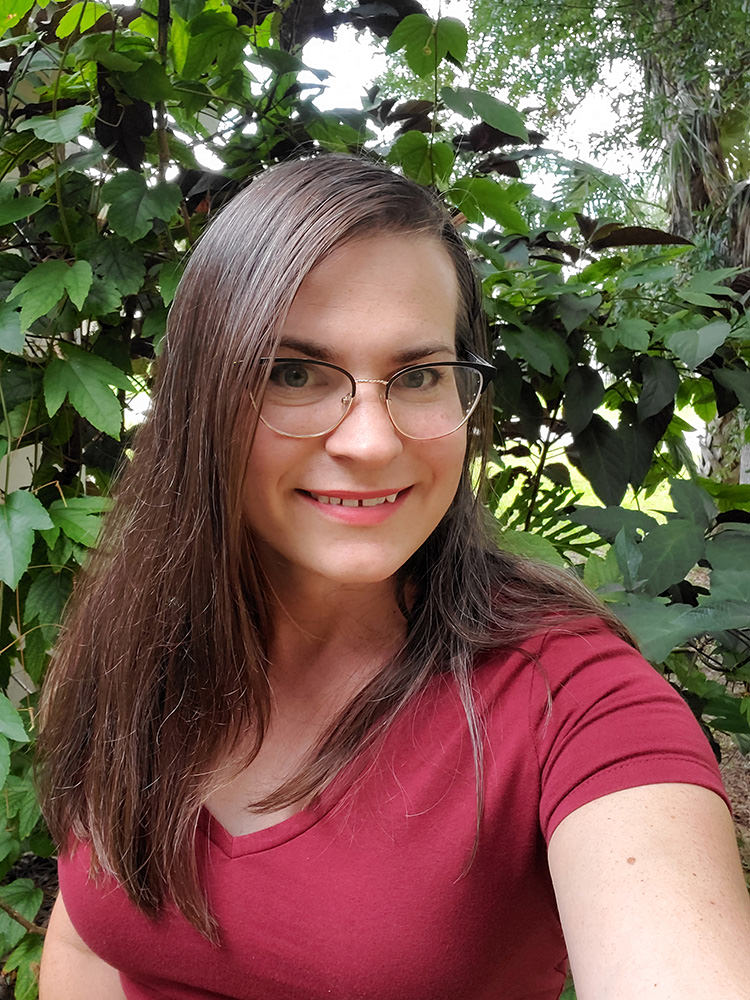
How do you identify as?
I am a transgender woman (she/her).
What was your life like before and after coming out?
I was actually married, we were together for like, 13 years, married for 6. In my younger years, my gender dysphoria wouldn’t really affect me very often. I couldn’t even define what I was feeling, but I knew I couldn’t identify and embrace being assigned male. It got heavier, more frequent and stressful with age. I’d deal with it in unhealthy ways, find ways to express myself privately, then fall into despair and shame, and just completely reject myself. It was then did I finally realize the emotional and mental benefits of skating being an outlet. I needed to turn to something. I was at work one day, and I was watching the Ground Control video, Damian Wilson’s section used an Against Me! song. It was the chorus that hooked me and I looked up the band, and found out that the lead singer, Laura, is trans. I checked out some of her interviews and was like “fuck, thats me…” And so there I was. 32, married, employed at (what I felt was to be) an unsafe workplace for someone like me. I had finally defined years of guilt and bullshit. I didn’t come out for another 2 years after. Once I found another job and started to feel comfortable exploring my identity, seeing a therapist and stuff. Once my walls came down, everyone else’s went up. We decided to get divorced, sell the house. It wasn’t overnight, and transition wasn’t the sole cause of my divorce, just to put that out there. Years of toxicity from both parties were being addressed. Our 2 dogs were sick and had to be euthanized, then the pandemic. Isolating in a home I purchased with a partner that I then had to sell. It’s not been an easy 4 years, but I’m extremely thankful for so much and wouldn’t change a thing.
How supportive have people been? Did you lose anyone during that transition? What changed for you?
I have supportive people in my life, but the ones I needed the support from most, wasn’t there with it. Funny thing is, it’s the realization that they were never much support anyways. It was like a like the curtain dropped in front of me. Lost my best friend. It destroyed the relationship I had with my sister. Her and I had been through so much too. Childhood trauma, divorce, addiction and recovery. Maybe I wasn’t the best elder sibling in all of those instances, maturity levels were certainly less developed then, but I was there as much as I could in those moments, I didn’t shut her out. That’s a painful one, but I try to maintain relationships with other immediate family. Anyway you look at it, it’s exhausting.
Has there been a time when you experienced some kind of discrimination within blading?
Yes and no honestly. I haven’t experienced any explicit oppressions, but I’ve certainly been in a few spaces where I’ve experienced a few well know, respected bladers and filmers side eye me hard body. It’s sickening, and eye opening. I’ll never forget my PowWow 2020 experience though, if I didn’t have allies there, skating would be very different today for me personally. I was encouraged to compete with the other women, but I was hesitant. With a crowd that big, I was sure to face adversity. It’s stupid, but trans people competing in sports has gained so much controversy because of conservative propaganda being portrayed in our society. It’s harmful, and deserves a whole other conversation. It’s important, but I digress. I had support from the other ladies, and I had an empowering thought, “you will be the first ever transgender woman to compete in a major aggressive skating event, you’re literally groundbreaking in this moment.” (That I know of at least, I’d like to know if that statement is inaccurate, and give credit where credit is due.)
So, I drank some beers to try and drown my anxiety and competed. Months later, I heard there were folks in the crowd running their mouths. Nearly a year later, I hear that there were behind the scenes discussions on whether I would be even allowed to compete. If I didn’t have some key allies in key positions, things may not have panned out that way. And I would have been crushed. To receive all this encouragement, to set aside my fears and anxiety, just to have someone say that I can’t be included because of whatever. I didn’t have a clue those discussions were happening. It saddens me to this day to write this. I extend a huge thank you to the folks that advocated for me in that space, they know who they are, and I hope they know how grateful I am. I hope they know that other queer/trans skaters will be grateful too, being able to look back and see someone like them, competing in major rollerblading events. That could be life changing for someone.
Being called a ‘fruitbooter’ or ‘gay’ is an old trope for the blade community. Do you think it had any long-term repercussions on the everyday blader’s opinion of queer skaters?
Maybe in some instances, but the bigger picture is that homophobia runs deep in our society, outside of rollerblading. If a rollerblader is homophobic, I can almost guarantee they were homophobic before they were a rollerblader. So, specifically, no. Homophobic slurs for rollerbladers, didn’t create a community of cis-het bladers, that gay bash queer bladers. Because blader-Kyles, are gonna blader-Kyle right?! Our community is such a small, blurry part of the bigger picture anyways, it’s impossible to base rollerbladers’ expressions of homophobia solely on the tropes used in the past. If society could just unlearn their homophobia, then there wouldn’t be “opinions” about queer people. With that said, let’s ask ourselves, how is it that queer rollerbladers aren’t “everyday bladers”? I see myself as an “everyday blader”. I’m a minority, based on my queer identity. But, I consume and create blading content. I promote the sport and buy skates and other products. I’m part of the community. I’m 37 and still skate 2-4 times a week. I do “everyday blader” things. So, with that said, in order to categorize rollerbladers within the questions context, I believe the correct words to use, is queer and non-queer rollerbladers (or cis-het rollerbladers, as in: cisgender and heterosexual). The reason I went into this, is because it’s language like this that has the potential to further distance queerness from what society, or blading, considers normal, or “everyday”. I read that question, and felt a little bit othered from the rest of the blading community. This system of thought, and language, we can learn to recognize it, and unlearn it. I’ve spent so much time unlearning homophobic, and transphobic systems, and yea, I’m slightly hyper-aware of microaggressions like that. And It’s these oppressive systems of thought that kept me feeling tons of shame and guilt about actually being a woman, it kept me from transitioning and actually feeling good about myself.
Much like being called queer was once outright derogatory, do you personally embrace or reject ‘fruitbooter’ as a descriptor? Should it be embraced by queer bladers?
Embrace it if you want. Personally, I don’t. Only we can choose the labels we identify with for ourselves, and it’s okay to change. I’m not offended by other rollerbladers using ‘fruitbooter’ due to belonging to a culture where it’s kind of part of its core identity. Goes without saying that the origin of its usage stems from oppression though. I think that with any terminology, if it’s oppressive, it’s removal from your vocabulary should be seriously considered, especially if someone says something about it. But like, fruitbooter may be empowering to some people. Regardless though, if you skateboard, and you use ‘fruitbooter’ for an inline skater, regardless of context, an inline skater potentially is gonna hard eyeroll because of its roots in oppressing inline skaters. Especially queer skaters, because of the added layer of homophobia that comes with it.
The mechanics of oppression I explained, correlates simply with using other slurs. Like calling someone a f*g, or saying tr*nny in reference to ramp skating (or transmissions, if you’re into mechanical things). Or using homosexuality to describe things in negative contexts. That terminology is rooted in oppression when coming from cis-het folks. If you’re cis-het, and use these terms and contexts like its all good, you’re casually being homophobic, and it’s not a good look honey.
Also to note, fruitbooter, as a slur, hasn’t been used for centuries to oppress masses of people for simply existing on earth as themselves. Homophobia runs fucking deep in our society. Rollerblading is an activity, yes we love it, yes we identify with it. But, you can take your skates off. You don’t have to be a fruitbooter, but I am transgender. I can’t take my queerness off and hang it up on the bathroom door. Again, there’s so much more to this conversation.
What can the rollerblading community and industry do better to support queer bladers?
I just think if people were more aware of the experiences queer people live through, it would help build much more empathy of queer rollerbladers, it honestly applies all skaters. Be aware of potentially homophobic and transphobic phrases. Don’t make people feel as if they are othered. Be welcoming. Being queer in a heteronormative society brings a whole gamut of scenarios to your thoughts, depending where you are, the main one being, “do I feel safe here?”. It can be tough to work through. Like, we all go skate for the fun, the “getting away.” As I explained earlier, my life got pretty weird for a while there. We deal with some shit, we all do. I try to be as empathetic as possible, to be better. I make mistakes. We’re all humans, and we all live life differently, just recognize your privileges in the space you’re in.
As for the industry, maybe recognize that we’re buying your product, that we want to be seen and heard too. I don’t see outreaching support for queer identifying skaters. I’m happy to say that there are a handful of sponsored LGBTQ+ bladers though, many of which, I’m assuming, are included in this article. There are a few queer positive brands, RollHer United, Rollerbender, (both queer femme ran brands). The US(period) initiative, led by Kennan Scott. He sees us. And Roces posts queer positive messaging periodically. RollHer, as a supportive entity, is the only rollerblading brand that actively shares skate content from trans skaters. That said, I’m very proud to wear those abstract hummingbird shirts. Since we are having a conversation here, I’m co-opting the Aware media club alongside Phil Moore, and other well known skaters in our community, where we are discussing social challenges, and oppressions in society within our community. Basically, we are trying to outreach to the community to actually engage in discussions centering around racism and queerphobia. So, yea, queerness in blading is fringe, but it’s getting better I think, I hope. I’m hoping that we can start seeing more queer led companies. Angie and Rollerbender are killing it. If I could find the time, and figure something out that’s creative to bring to market, I’d like to start something as well. I think it would be fulfilling. And if that happens, I’d just hope folks would support it too.
Who are some queer bladers we should take note of?
@anika_onesixty
@boomchld
@thepickleshreds
@__valentinx
@holler_goth
@_quiet_____
@big_h_rach



